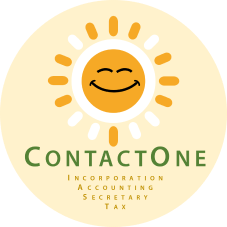We will be frank here. If you’ve checked most of the pointers below, you will be better off doing the accounts and tax yourself, or probably only need certain specific services from us.
- I have bookkeeping experience from my past profession or working experience and I am confident that I am capable of managing the bookkeeping functions for my own company.
- I have no bookkeeping experience but I will be hiring an experienced in-house bookkeeper to manage my books early at the start of my business.
- I know that my business activity will be low and I will have time to manage my own books.
- I know the difference between keeping records of my accounts and I am capable of translating these information into a full set of financial statements.
- I am familiar with the corporate tax regulations, requirements and tax laws of Singapore.
- I know when the right time to register for GST is, and I am aware of the GST regulations and filing requirements affecting my company.
- I am very confident that I will be able to meet all the associated filing deadlines if I am taking charge of the accounting and tax function of my company.
- I am sure of my obligations towards CPF contributions for my staff and I am confident that I can submit the CPF filings on time every month.
- I am a disciplined person who is able to perform routine record keeping.
Cost Faceoff: Engaging External Accountant versus In-House Bookkeeper
We don’t really wish to post figures for comparison here as each set of accounts is unique and have different needs, thus a benchmark comparison will serve little purpose here. What we can do is show a comparison chart to illustrate the different scenarios of managing your company accounts.
| Considerations | You are your own bookkeeper | Hire an In-house Bookkeeper | Engage ContactOne Accountant |
| Cost | $0 | 12 months of pay plus bonus | Agreed Service Fee based on accounts assessment |
| Record-Keeping (referring to the upkeep of source documents & organization of filing) | You or your internal staff will have to do this | Your bookkeeper will do this | You or your internal staff will have to do this |
| Purchase Accounting Software | Yes or you may use Excel for simple and low volume business | Typically Yes | You will most likely not need to purchase any software. |
| Time Spent on data entry for 100 transactions (assuming accounts setup is completed) | 1 – 6 hours depending on your level of experience | 1 – 3 hours depending on quality of source documents | 1 – 3 hours depending on quality of source documents |
| Technical Expertise Required for yourself | Should be familiar with bookkeeping procedures | Should be able to hire a competent bookkeeper | Trust us |
| Risks | You may not the time or discipline to prepare your accounts on time, resulting in late submissions and penalties. | You may run the risk of staff resigning, thus leaving a gap in your bookkeeping management, and a headache when your new bookkeeper attempts to take over the accounts midway. | Late submission of documents and information to us may delay the completion date. We have an excellent record in meeting due dates as we always strive to be on time for all due dates but external circumstances may occasionally compromise our delivery on time. |
Important Pointers to Remember for Accounting and Tax
One – Never leave it late.
Always be prepared from the onset to set up the accounting and tax function of the Company early in the starting stage of the Company. We�ve heard many cases of unnecessary fines, summons and court orders because the company has not done any accounting at all even up to the filing deadline or they have simply left the task untouched until there is simply not enough time left to file on time..
Two – Keep Your Source Documents Organized
Bookkeeping, and thereafter Tax, are all derived and processed from source documents that you amassed over the financial year. It is strongly encouraged that you keep these documents sorted in an organized manner, so that starting work on the accounts is a straightforward matter. An organized effort to keep your files in order lets you know if all the documents are in place, without the last minute panic that you have lost certain important invoices or statements which are crucial to the bookkeeping process. You may find out how you may keep your documents organized in our section: Basics of Record Keeping for Company.
Three – Get Help Immediately if you Feel that you are Overwhelmed
If at any point in time, you are feeling overwhelmed by the sheer load of the bookkeeping and tax function of your company, due to the lack of time or experience, get help immediately from us so that your compliance obligations will not be compromised.

